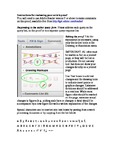IFN-λ3, not IFN-λ4, likely mediates IFNL3-IFNL4 haplotype-dependent hepatic inflammation and fibrosis
| dc.contributor.author | Eslam, M | |
| dc.contributor.author | McLeod, D | |
| dc.contributor.author | Kelaeng, KS | |
| dc.contributor.author | Mangia, A | |
| dc.contributor.author | Berg, T | |
| dc.contributor.author | Thabet, K | |
| dc.contributor.author | Irving, WL | |
| dc.contributor.author | Dore, GJ | |
| dc.contributor.author | Sheridan, David | |
| dc.contributor.author | Grønbæk, H | |
| dc.contributor.author | Abate, ML | |
| dc.contributor.author | Hartmann, R | |
| dc.contributor.author | Bugianesi, E | |
| dc.contributor.author | Spengler, U | |
| dc.contributor.author | Rojas, A | |
| dc.contributor.author | Booth, DR | |
| dc.contributor.author | Weltman, M | |
| dc.contributor.author | Mollison, L | |
| dc.contributor.author | Cheng, W | |
| dc.contributor.author | Riordan, S | |
| dc.contributor.author | Mahajan, H | |
| dc.contributor.author | Fischer, J | |
| dc.contributor.author | Nattermann, J | |
| dc.contributor.author | Douglas, MW | |
| dc.contributor.author | Liddle, C | |
| dc.contributor.author | Powell, E | |
| dc.contributor.author | Romero-Gomez, M | |
| dc.contributor.author | George, J | |
| dc.contributor.author | Metwally, M | |
| dc.contributor.author | White, R | |
| dc.contributor.author | Gallego-Duran, R | |
| dc.contributor.author | Leung, R | |
| dc.contributor.author | Mahajan, N | |
| dc.contributor.author | Bassendine, M | |
| dc.contributor.author | Rahme, A | |
| dc.contributor.author | Rosso, C | |
| dc.contributor.author | Mezzabotta, L | |
| dc.contributor.author | Malik, B | |
| dc.contributor.author | Matthews, G | |
| dc.contributor.author | Asimakopoulos, A | |
| dc.contributor.author | Applegate, T | |
| dc.contributor.author | Grebely, J | |
| dc.contributor.author | Fragomeli, V | |
| dc.contributor.author | Jonsson, JR | |
| dc.contributor.author | Santoro, R | |
| dc.date.accessioned | 2017-04-28T11:48:51Z | |
| dc.date.available | 2017-04-28T11:48:51Z | |
| dc.date.issued | 2017-04-10 | |
| dc.identifier.issn | 1061-4036 | |
| dc.identifier.issn | 1546-1718 | |
| dc.identifier.uri | http://hdl.handle.net/10026.1/9163 | |
| dc.description.abstract |
Genetic variation in the IFNL3-IFNL4 (interferon-λ3-interferon-λ4) region is associated with hepatic inflammation and fibrosis. Whether IFN-λ3 or IFN-λ4 protein drives this association is not known. We demonstrate that hepatic inflammation, fibrosis stage, fibrosis progression rate, hepatic infiltration of immune cells, IFN-λ3 expression, and serum sCD163 levels (a marker of activated macrophages) are greater in individuals with the IFNL3-IFNL4 risk haplotype that does not produce IFN-λ4, but produces IFN-λ3. No difference in these features was observed according to genotype at rs117648444, which encodes a substitution at position 70 of the IFN-λ4 protein and reduces IFN-λ4 activity, or between patients encoding functionally defective IFN-λ4 (IFN-λ4-Ser70) and those encoding fully active IFN-λ4-Pro70. The two proposed functional variants (rs368234815 and rs4803217) were not superior to the discovery SNP rs12979860 with respect to liver inflammation or fibrosis phenotype. IFN-λ3 rather than IFN-λ4 likely mediates IFNL3-IFNL4 haplotype-dependent hepatic inflammation and fibrosis. | |
| dc.format.extent | 795-800 | |
| dc.format.medium | Print-Electronic | |
| dc.language | en | |
| dc.language.iso | en | |
| dc.publisher | Springer Science and Business Media LLC | |
| dc.subject | Fibrosis | |
| dc.subject | Gene Frequency | |
| dc.subject | Genotype | |
| dc.subject | Haplotypes | |
| dc.subject | Hepacivirus | |
| dc.subject | Hepatitis C | |
| dc.subject | Humans | |
| dc.subject | Inflammation | |
| dc.subject | Interferons | |
| dc.subject | Interleukins | |
| dc.subject | Linkage Disequilibrium | |
| dc.subject | Liver | |
| dc.subject | Logistic Models | |
| dc.subject | Multivariate Analysis | |
| dc.subject | Polymorphism, Single Nucleotide | |
| dc.subject | Reverse Transcriptase Polymerase Chain Reaction | |
| dc.title | IFN-λ3, not IFN-λ4, likely mediates IFNL3-IFNL4 haplotype-dependent hepatic inflammation and fibrosis | |
| dc.type | journal-article | |
| dc.type | Journal Article | |
| plymouth.author-url | https://www.webofscience.com/api/gateway?GWVersion=2&SrcApp=PARTNER_APP&SrcAuth=LinksAMR&KeyUT=WOS:000400051400020&DestLinkType=FullRecord&DestApp=ALL_WOS&UsrCustomerID=11bb513d99f797142bcfeffcc58ea008 | |
| plymouth.issue | 5 | |
| plymouth.volume | 49 | |
| plymouth.publication-status | Published | |
| plymouth.journal | Nature Genetics | |
| dc.identifier.doi | 10.1038/ng.3836 | |
| plymouth.organisational-group | /Plymouth | |
| plymouth.organisational-group | /Plymouth/Faculty of Health | |
| plymouth.organisational-group | /Plymouth/Faculty of Health/Peninsula Medical School | |
| plymouth.organisational-group | /Plymouth/REF 2021 Researchers by UoA | |
| plymouth.organisational-group | /Plymouth/REF 2021 Researchers by UoA/UoA01 Clinical Medicine | |
| plymouth.organisational-group | /Plymouth/Users by role | |
| plymouth.organisational-group | /Plymouth/Users by role/Academics | |
| dc.publisher.place | United States | |
| dcterms.dateAccepted | 2017-03-13 | |
| dc.rights.embargodate | 2017-10-10 | |
| dc.identifier.eissn | 1546-1718 | |
| dc.rights.embargoperiod | Not known | |
| rioxxterms.versionofrecord | 10.1038/ng.3836 | |
| rioxxterms.licenseref.uri | http://www.rioxx.net/licenses/all-rights-reserved | |
| rioxxterms.licenseref.startdate | 2017-04-10 | |
| rioxxterms.type | Journal Article/Review |


